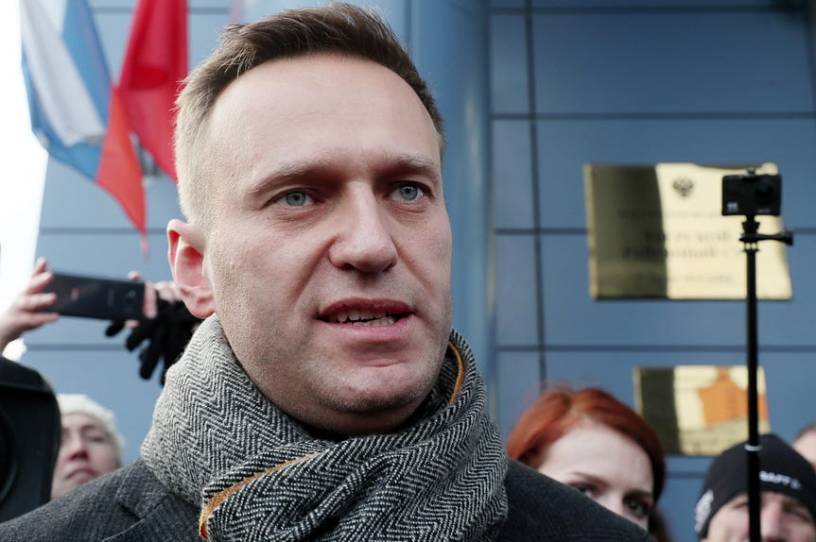Chemical Weapons in Russia an Early Test for Biden

Despite the Kremlin’s ongoing attacks against the United States and its allies, some influential foreign policy voices are already counseling the incoming Biden administration to prioritize arms control with Moscow. Those voices would do well to stop and consider the current threat Moscow poses to arms control itself.
Last month, Bellingcat and CNN revealed the results of an investigation into the August poisoning of Russian opposition figure Alexei Navalny, who was arrested Sunday by Russian authorities upon his return to Moscow from Germany.
The investigation uncovered Russian intelligence service units that tracked Navalny and likely carried out the poisoning. These units were connected to two institutes, the St. Petersburg GNII VM and Moscow-based SC Signal, that likely play a role in Russia’s covert chemical weapons program.
Unfortunately, this incident was not the first time that the Russian Federation has blatantly violated the international norm against the use of chemical weapons.
Early in the Trump administration, the Russian government reportedly deployed this same nerve agent on British soil, resulting in the death of an innocent British citizen.
The use of this Soviet-era nerve agent led to an international outcry, concerted international sanctions, and a finding by the U.S. Department of State that Russia violated a Clinton-era multilateral arms control treaty.
Russia’s actions were so lawless, it soon attempted to hack the Organization for the Prohibition of Chemical Weapons (OPCW) in The Hague in a sloppy attempt to cover up its footsteps.
Sadly, Navalny is living proof that the costs imposed on Russia for the 2018 attack were not sufficient to make the continuing use of chemical weapons too costly an option for Putin’s regime.
The treaty in question, the Chemical Weapons Convention (CWC), was ratified by the U.S. Senate in 1997, when President-elect Biden was ranking member of the Senate Foreign Relations Committee, and has stringent verification provisions. The most intrusive are challenge inspections, which can be requested by any state party to the convention that has concerns about another state party’s compliance with the treaty.
Chemical and biological weapons programs, as opposed to missile and nuclear programs, tend to be more mobile and easier to conceal. Illicit chemical work also can be disguised at private industrial facilities—so-called dual-use facilities—or as permitted defensive research. It is for these reasons that negotiators of the Chemical Weapons Convention included challenge inspections as a verification tool.
The convention’s challenge inspection provisions were reinforced in the Senate’s bipartisan conditions that accompanied treaty ratification after a tortuous debate between Republicans and the Clinton administration. These conditions require the president—when noncompliance is suspected—to “seek on an urgent basis” a challenge inspection to reveal treaty noncompliance to the world.
Yet despite decades of concerns that several state parties, including Russia and Iran, are not abiding by the treaty, successive U.S. administrations have failed to initiate any challenge inspections, weakening the convention and encouraging treaty violators to remain party to it with impunity.
Even prior to Russia’s spate of attempted targeted killings using banned chemicals, Russia’s ally Syria used chemical weapons repeatedly against innocent civilians, leading the Trump administration to resort to military action in response.
Early in its term, the Biden administration should join U.S. allies in Europe, including the United Kingdom, to initiate a challenge inspection of the Russian facilities involved in the Navalny and Skripal poisonings as well as other sites suspected to be part of Russia’s chemical weapons program. The treaty allows broad access to personnel for questioning, in addition to physical access, and this access should be demanded in the most robust manner possible.
Arms-control zealots committed to negotiating agreements rather than policing them may argue that pushing for a challenge inspection risks driving Moscow out of the treaty. But if the Kremlin is not committed to compliance, what is the downside to that? A treaty is not worth the paper it is printed on if it can be violated without consequence.
A verification-focused approach to a key arms control regime like the Chemical Weapons Convention would also be a positive signal to Republicans. In recent decades, bipartisan comity on arms control has frayed. The Biden administration will be focused on trying to extend the New START agreement with Russia and reentering nuclear negotiations with Iran.
A first step toward restoring bipartisan support in this important area would be showing that the executive branch is finally willing to take Senate concerns and guidance seriously. The Chemical Weapons Convention would be a good place to start.
The United States faces a choice: It can either use the means afforded to it in the treaty to expose and raise the price for Russia’s violations, or it can continue to stand idly by as an important international norm, duly ratified by the U.S. Senate, deteriorates further.
The current trajectory, complaining about Russia’s actions without raising the costs of its malign activity sufficiently, will only lead the world back to the days of routine state-sponsored use of a weapon that previous generations deemed beyond the pale after the killing fields of World War I. It will also continue to deepen skepticism in the United States about the utility of arms control agreements with rogue actors who use them as cover for illicit activities.
During the campaign, Biden told the New York Times that “the United States has a special ability and responsibility to mobilize others” to respond to chemical weapons use. He will face an immediate opportunity to do this in response to the Kremlin’s repeated violations of its obligations under the CWC.
Jamie Fly is a senior fellow at the German Marshall Fund of the United States and served as foreign policy adviser to Sen. Marco Rubio. Tim Morrison was a deputy assistant to the president for national security for President Trump and is a senior fellow at the Hudson Institute.